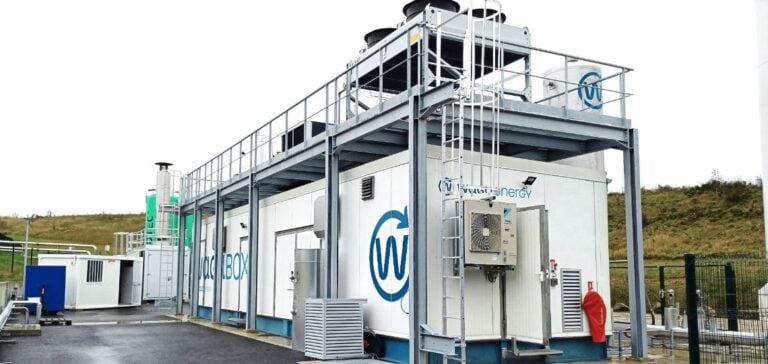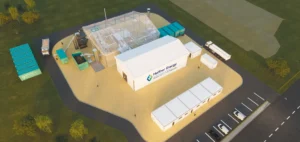Waga Energy announced the commissioning of a biomethane production unit at the Hartland landfill site in British Columbia. This facility, developed in collaboration with Capital Regional District (CRD) and energy distributor FortisBC, is the first landfill gas upgrading infrastructure on Vancouver Island. The technology used, WAGABOX®, transforms gas from decomposing waste into biomethane, which is then injected into the local distribution network.
An annual capacity of 100 GWh of biomethane
The facility is designed to produce up to 100 GWh of biomethane per year, equivalent to the annual consumption of over 9,000 households, according to the company’s estimates. Over a 25-year period, the project is expected to reduce carbon dioxide emissions by approximately 475,000 tonnes. The upgraded gas is directly integrated into FortisBC’s network, the region’s main operator.
A structuring regional partnership
The Capital Regional District contributed to the implementation of the facility, leveraging an existing landfill site to integrate the new technology. The project aligns with British Columbia’s energy plans to diversify gas sources and incorporate low-carbon local solutions. The involvement of regional partners enabled a faster technical deployment of the unit.
A milestone for biomethane grid integration
FortisBC, in charge of transporting the produced biomethane, supports the development of local projects to secure its supply. The company is currently leading several similar initiatives across the province. This project with Waga Energy and CRD marks one of the first industrial applications of the WAGABOX® technology in Canada.
Barbara Desjardins, CRD Chair, stated that this project represents a concrete approach to waste management and regional energy supply. Joe Mazza, Vice President at FortisBC, highlighted the contribution of this initiative to local energy stability. Julie Flynn, Managing Director of Waga Energy Canada, noted that this deployment is a first step in using this technology in the North American market.






















